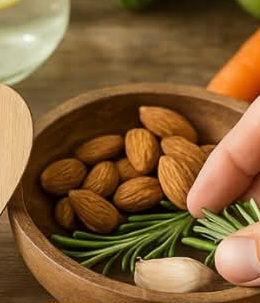Your heart works tirelessly every day, pumping life through your body. But certain foods can strain this vital organ, increasing the risk of heart disease, which remains the leading cause of death in the United States, according to the CDC. The good news? You can take control by making smarter food choices. This article explores foods to limit or avoid for a healthier heart, backed by science, and offers practical tips to keep your ticker strong. Let’s dive in and discover how small changes can make a big difference!
Why Your Food Choices Matter for Heart HealthWhat you eat directly impacts your heart. Diets high in unhealthy fats, sodium, and sugars can raise cholesterol, blood pressure, and inflammation—key risk factors for heart disease. The American Heart Association emphasizes that a heart-healthy diet focuses on whole foods while limiting processed options. By avoiding certain foods, you can lower your risk and feel better overall. Let’s explore the top culprits to watch out for.Processed Meats: A Hidden Heart RiskProcessed meats like bacon, sausage, hot dogs, and deli meats are convenient but often packed with sodium and unhealthy fats. A 2020 study in the Journal of the American College of Cardiology linked regular consumption of processed meats to a higher risk of heart disease. Sodium can raise blood pressure, while saturated fats increase LDL (“bad”) cholesterol.Tips to Cut Back on Processed Meats:Swap bacon for turkey or plant-based alternatives with lower sodium.Choose fresh chicken or fish for sandwiches instead of deli meats.Read labels: Aim for options with less than 300 mg of sodium per serving.Try meatless meals, like lentil soup, a few times a week.By reducing processed meats, you’ll ease the strain on your heart and open the door to tastier, fresher options.Sugary Drinks: Sweet but RiskySodas, energy drinks, and sweetened coffees may quench your thirst, but they’re loaded with added sugars. Harvard Health reports that sugary drinks are linked to weight gain, diabetes, and a 20% higher risk of heart disease. Excess sugar can lead to inflammation and higher triglyceride levels, both harmful to your heart.How to Ditch Sugary Drinks:Switch to water infused with fruit, like lemon or berries, for a refreshing twist.Try unsweetened teas or sparkling water for a fizzy alternative.Check labels for hidden sugars in “healthy” drinks like flavored waters.Gradually reduce sugar in coffee or tea to retrain your taste buds.Cutting back on sugary drinks is a simple step that can protect your heart and boost your energy.Fried Foods: Crispy but CostlyFried foods like French fries, fried chicken, and doughnuts are often cooked in oils high in trans fats or saturated fats. These fats can clog arteries and raise cholesterol levels. A 2019 study in The BMJ found that frequent consumption of fried foods increases the risk of heart disease and stroke. Even occasional indulgences add up over time.Healthier Alternatives to Fried Foods:Bake or air-fry foods for a crispy texture without excess oil.Use olive or avocado oil in moderation for cooking.Opt for grilled or roasted vegetables instead of fried sides.Satisfy cravings with baked sweet potato fries seasoned with herbs.By choosing baked or grilled options, you’ll enjoy delicious flavors without harming your heart.High-Sodium Snacks: A Salty TrapChips, pretzels, and packaged snacks are often loaded with sodium, which can raise blood pressure and strain your heart. The CDC notes that most Americans consume far more than the recommended 2,300 mg of sodium daily, with snacks being a major source. High sodium also contributes to water retention, making your heart work harder.Ways to Snack Smarter:Choose unsalted nuts or seeds for a heart-healthy crunch.Make your own popcorn with minimal salt and a dash of spices.Reach for fresh veggies with hummus instead of salty chips.Check nutrition labels for sodium content before buying snacks.Swapping high-sodium snacks for low-salt options can keep your blood pressure in check and your heart happy.Refined Carbohydrates: Empty Calories, Big ImpactWhite bread, pastries, and sugary cereals are made from refined grains that lack fiber and nutrients. These foods can spike blood sugar and contribute to weight gain, both of which stress the heart. A 2021 study in The Lancet found that diets high in refined carbs are associated with a higher risk of heart disease compared to whole-grain diets.Switching to Heart-Healthy Carbs:Choose whole-grain bread, brown rice, or quinoa for more fiber.Start your day with oatmeal topped with fruit instead of sugary cereal.Limit pastries and opt for fruit or yogurt for dessert.Look for “100% whole grain” on labels to avoid hidden refined carbs.Incorporating whole grains can stabilize blood sugar and support long-term heart health.Practical Steps to Build a Heart-Healthy DietAvoiding harmful foods is just one part of the equation. Building a balanced, heart-friendly diet is key to long-term health. The Mayo Clinic recommends filling your plate with colorful fruits and vegetables, lean proteins, and healthy fats like those found in avocados and nuts. Small changes can lead to big results, and you don’t have to overhaul your diet overnight.Easy Ways to Start Today:Plan meals ahead to avoid relying on processed or fast foods.Shop the perimeter of the grocery store for fresh produce and proteins.Cook at home more often to control ingredients and portions.Keep a food journal to track what you eat and spot patterns.Share this article with a friend who wants to eat healthier, and start making heart-smart choices together!Final Thoughts on Protecting Your HeartYour heart deserves the best care, and avoiding foods like processed meats, sugary drinks, fried foods, high-sodium snacks, and refined carbs is a powerful step. By making small, sustainable changes, you can lower your risk of heart disease and feel more vibrant every day. Explore more health tips on our site to keep your wellness journey going strong!*Disclaimer: This article is for informational purposes only and does not substitute professional medical advice. Consult your doctor before making health changes.The Hidden Enemies in Your Diet That Could Be Weakening Your Heart
